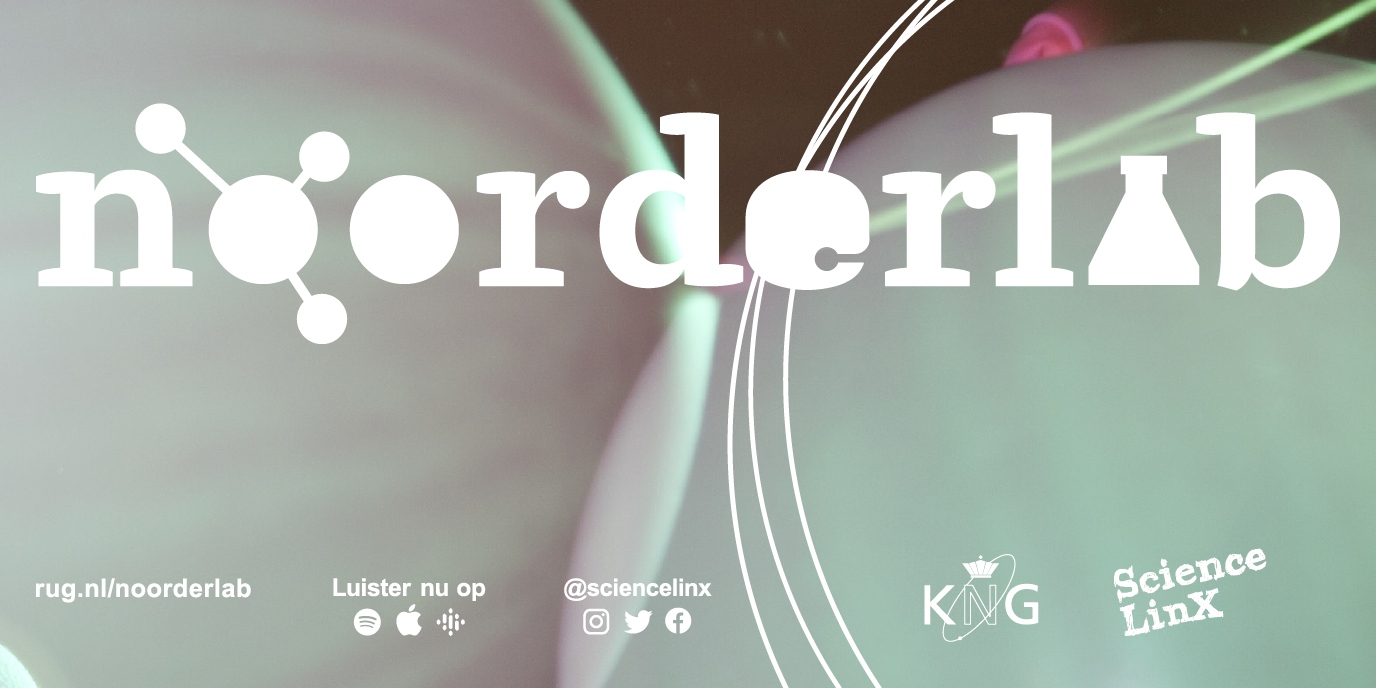Noorderlab: The new science podcast for curious Northerners
Noorderlab is the new science podcast for curious Northerners. Each episode of the Noorderlab podcast gives a glimpse into one of the laboratories of the University of Groningen. Researchers talk about the content of their work and what drives them. A nice insight into university research.
The first season focuses on the Stratingh Institute for Chemistry. A new episode about the wonderful world of chemistry is released every three to four weeks. The Noorderlab podcast can be listened to on Spotify (and the other well-known listening platforms such as Apple and Google Podcasts).
The podcast was developed by Science LinX, the science center of the Faculty of Science and Engineering of the University of Groningen. The podcast is made possible by the Royal Physics Society and produced by production house PodGront. In every episode of about a 'student quarter' you meet one of the scientists and PodGront host Amanda Brouwer.
More information is available on the Noorderlab web page.

More news
-
10 February 2026
Why only a small number of planets are suitable for life
-
09 February 2026
Can we make the earth spin in the opposite direction?
